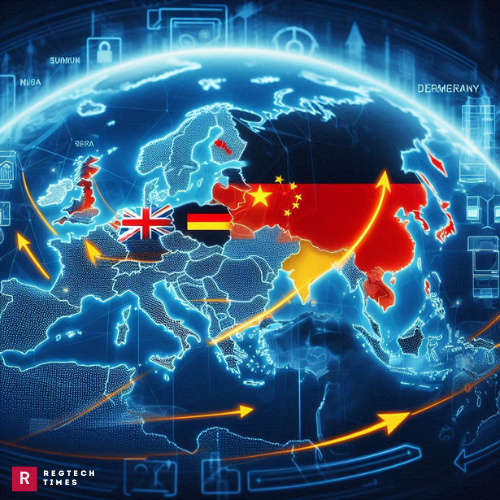A recent incident that has shocked political circles around Europe is that Germany has detained an assistant to a Member of the European Parliament (MEP) on suspicion of spying for China. Jian G. is the accused party who is alleged to have sent China’s Ministry of State Security (MSS) confidential information on the European Parliament’s internal operations. This arrest highlights the possible infiltration of extreme political groups by foreign intelligence agencies and raises serious worries about the integrity of democracy just ahead of the June EU elections.
The Allegations
Germany’s prosecutors have made serious accusations against Jian G., which led to his imprisonment. It is said that he provided the Chinese intelligence service with multiple important pieces of information on discussions and decisions made in the European Parliament. An additional layer of intricacy to the espionage case has been revealed: Jian G. was also involved in spying on Chinese dissident figures living in Germany.
A Connection to Far-Right Politics
It is impossible to ignore the political aspect of this espionage case. Although the media reports suggest that Jian G. was connected to Maximilian Krah, the front-runner of the far-right Alternative for Germany (AfD) party in the 2018 European Parliament elections, German officials did not specifically state which MEP hired Jian G. Concerns over the vulnerability of European democracy to outside influence are raised by Krah’s connections to Jian G., who highlights the possibility of foreign intelligence services infiltrating radical political organizations.
Reactions and Condemnations
Strong reactions have been received from an array of sources regarding Jian G.’s detention. Labeling the espionage claims as “extremely serious,” Interior Minister Nancy Faeser emphasized that any betrayal of confidence from within the European Parliament is a direct attack on democracy in Europe. In addition, she has emphasized the significance of holding companies responsible for hiring people involved in such criminal acts, demonstrating her strong opposition to outside meddling in European politics.
Political Fallout and International Ramifications
Jian G.’s detention has caused a great deal of alarm, especially inside the AfD, which called it “very disturbing.” However, Maximilian Krah, the MEP associated with Jian G., has not spoken up, even though he previously defended Jian G. from charges of engaging in China lobbying. This quiet betrayal of complex political allegiances. The consequences of Jian G.’s detention extend beyond Germany; China’s foreign ministry strongly refutes the accusations. They charge anonymous organizations with trying to damage Beijing’s image and sabotage Sino-European ties. This episode comes after comparable arrests for espionage in the UK, suggesting a larger pattern of Chinese intelligence operations aimed at European countries.
Safeguarding European Democracy
In light of these alarming developments, calls have been made for the European Parliament to expedite its ongoing investigation into foreign influence, with the aim of safeguarding the integrity of the upcoming elections in June. Green MEP Terry Reintke has emphasized the urgent need to counteract the efforts of autocratic regimes like China and Russia, who are actively seeking to undermine democratic institutions across Europe.
Implications for Germany-China Relations
Germany and China’s relations could be strained as a result of the espionage crisis, especially in the economic domain. Allegations of Chinese espionage on the soil of Germany may put Chancellor Olaf Scholz’s recent visit to China, which was intended to strengthen business ties, under closer examination. These events highlight how difficult it is to strike a balance in the age of geopolitical rivalry between concerns for national security and economic collaboration.
Europe’s political scene has been clouded by Jian G.’s arrest and the ensuing disclosures about his espionage for China. It acts as a wake-up call, drawing attention to the pressing need to protect democratic institutions from foreign meddling, for both citizens and governments. Maintaining the integrity of the democratic process has to be the top priority as Europe gets ready for the next round of elections. The core tenets of democracy can only be safeguarded against outside attacks through concerted effort and resolute action.



